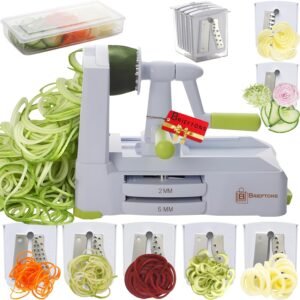
Processed foods can be detrimental to human health due to their high levels of sugar, unhealthy fats, and additives. These ingredients contribute to chronic diseases, obesity, and inflammation. Discover why avoiding processed foods is crucial for maintaining optimal health and how a whole-food diet can benefit your well-being.
Processed foods are a staple in many modern diets, offering convenience and long shelf lives. However, these seemingly harmless foods can have severe consequences for human health. In this comprehensive article, we will explore the reasons why processed foods are detrimental, supported by the latest statistics, expert opinions, and practical recommendations for healthier eating habits. This easy-to-read guide will help you understand the dangers of processed foods and make informed dietary choices.
What Are Processed Foods?
Processed foods are those that have been altered from their natural state for safety reasons or convenience. This alteration can involve the addition of ingredients such as preservatives, flavors, nutrients, and other food additives or substances approved for use in food products. Processed foods include a wide range of items, from canned vegetables and fruits to snacks, beverages, and ready-to-eat meals.
The Components of Processed Foods
1. High Levels of Sugar
Processed foods often contain high amounts of added sugars, which can lead to various health problems, including obesity, diabetes, and heart disease.
2. Unhealthy Fats
These foods typically include unhealthy fats, such as trans fats and excessive amounts of saturated fats, which can increase the risk of cardiovascular diseases.
3. Excessive Salt
High sodium content in processed foods can lead to hypertension and other heart-related issues.
4. Artificial Additives
Preservatives, artificial colors, flavors, and other chemical additives used in processed foods can have adverse health effects, including allergic reactions and potential links to cancer.
The Health Risks of Processed Foods
1. Obesity and Weight Gain
Processed foods are often calorie-dense but nutrient-poor, leading to weight gain and obesity. According to the World Health Organization (WHO), obesity rates have tripled since 1975, with processed foods being a significant contributing factor.
2. Increased Risk of Diabetes
The high sugar content in processed foods spikes blood sugar levels, increasing the risk of type 2 diabetes. The Centers for Disease Control and Prevention (CDC) reports that over 34 million Americans have diabetes, with diet playing a crucial role in its prevalence.
3. Heart Disease
Trans fats and high sodium levels in processed foods contribute to heart disease. The American Heart Association notes that heart disease is the leading cause of death globally, with diet being a major influencing factor.
4. Cancer
Some processed foods contain carcinogenic substances, such as certain preservatives and additives. The International Agency for Research on Cancer (IARC) has classified processed meats as carcinogenic to humans.
5. Digestive Issues
The lack of fiber in processed foods can lead to digestive problems such as constipation and diverticulitis. Fiber is essential for healthy digestion, and its deficiency can cause significant gastrointestinal issues if you’re not on a carnivire diet.
Latest Statistics on Processed Foods and Health
- Obesity: According to the CDC, the obesity rate in the United States was 42.4% in 2017-2018, with processed foods being a major contributor.
- Diabetes: The CDC also states that over 88 million American adults have prediabetes, with a high risk of progressing to type 2 diabetes, largely due to diet.
- Heart Disease: The American Heart Association reports that nearly half of American adults have some form of cardiovascular disease.
- Cancer: The World Cancer Research Fund estimates that approximately 30-50% of all cancer cases are preventable with a healthy diet, physical activity, and maintaining a healthy weight.
Expert Opinions on Processed Foods
Dr. Michael Greger, MD
Dr. Greger, a well-known physician and author, emphasizes the dangers of processed foods in his book “How Not to Die.” He highlights the role of whole foods in preventing chronic diseases and the negative impact of processed foods on overall health.
Dr. Robert Lustig, MD
Dr. Lustig, an endocrinologist, has extensively researched the effects of sugar on the body. He argues that processed foods, especially those high in added sugars, are toxic and a major driver of chronic diseases such as obesity, diabetes, and heart disease.
Dr. Mark Hyman, MD
Dr. Hyman, a leader in functional medicine, points out that processed foods are devoid of essential nutrients and filled with harmful additives. He advocates for a diet rich in whole, unprocessed foods to promote optimal health.
Practical Recommendations for Avoiding Processed Foods
1. Read Labels Carefully
Always check the ingredient list on food packages. Avoid items with long lists of ingredients, especially those with unfamiliar names or artificial additives.
2. Choose Whole Foods
Opt for fresh fruits, vegetables, whole grains, and lean proteins. These foods are nutrient-dense and free from harmful additives.
3. Cook at Home
Preparing meals at home allows you to control the ingredients and avoid unhealthy additives. Experiment with new recipes to make home-cooked meals enjoyable.
4. Limit Sugary Drinks
Replace sodas and other sugary beverages with water, herbal teas, or fresh fruit juices. Reducing sugar intake can significantly improve health.
5. Avoid Processed Meats
Limit consumption of processed meats such as sausages, hot dogs, and deli meats. Choose fresh, lean cuts of meat instead.
The Economic Impact of Processed Foods
Processed foods are often cheaper and more convenient than whole foods, which can make them more appealing, especially for those on a tight budget. However, the long-term health costs associated with consuming processed foods can outweigh the short-term savings. Chronic diseases linked to processed foods, such as diabetes and heart disease, result in significant healthcare costs and lost productivity.
Environmental Impact of Processed Foods
The production of processed foods also has a considerable environmental impact. The industrial processes involved in making these foods require substantial energy and resources, contributing to pollution and environmental degradation. By choosing whole, unprocessed foods, consumers can reduce their environmental footprint.
Processed foods may offer convenience and longer shelf lives, but they come with significant health risks. The high levels of sugars, unhealthy fats, excessive salt, and artificial additives in these foods contribute to obesity, diabetes, heart disease, cancer, and digestive issues. By understanding the dangers of processed foods and making informed dietary choices, individuals can improve their health and reduce the risk of chronic diseases.
FAQs About Processed Foods
Q: What are processed foods? A: Processed foods are those that have been altered from their natural state through various methods such as canning, freezing, refrigeration, dehydration, and aseptic processing.
Q: Why are processed foods bad for health? A: Processed foods often contain high levels of added sugars, unhealthy fats, excessive salt, and artificial additives, which can lead to obesity, diabetes, heart disease, cancer, and digestive issues.
Q: How can I reduce my intake of processed foods? A: Read food labels carefully, choose whole foods, cook at home, limit sugary drinks, and avoid processed meats.
Q: Are all processed foods unhealthy? A: Not all processed foods are unhealthy. Minimally processed foods like frozen vegetables, canned beans, and whole-grain bread can be part of a healthy diet.
Q: What is the impact of processed foods on the environment? A: The production of processed foods requires significant energy and resources, contributing to pollution and environmental degradation. Opting for whole, unprocessed foods can help reduce your environmental footprint.
By understanding the dangers of processed foods and making informed choices, you can protect your health and the health of the planet.
Here are two alternative Amazon items to help you avoid processed foods:
1. FoodSaver Vacuum Sealer Machine

- Description: The FoodSaver Vacuum Sealer helps preserve the freshness and quality of food by removing air and sealing bags tightly. This is particularly useful for storing bulk foods and meal prepping with fresh ingredients.
- Benefits:
- Extended Shelf Life: Keeps food fresh up to five times longer than traditional storage methods, reducing the need for processed, preservative-laden foods.
- Cost Savings: Allows you to buy fresh foods in bulk and store them efficiently, minimizing food waste.
- Convenient Meal Prep: Enables batch cooking and meal prepping, making it easy to have healthy, homemade meals ready to go.
- Usage: Use the vacuum sealer to store fresh fruits, vegetables, meats, and prepared meals. It’s ideal for freezing, refrigerating, or storing pantry items.
2. Spiralizer 7-Blade Vegetable Slicer

- Description: The Spiralizer is a versatile kitchen tool that transforms vegetables into noodle shapes, making it easier to incorporate more fresh produce into your diet.
- Benefits:
- Increase Vegetable Intake: Encourages the consumption of more vegetables by making them fun and easy to eat.
- Low-Carb Alternatives: Provides a healthy, low-carb alternative to pasta and noodles, helping you avoid processed grains.
- Creative Cooking: Allows for a variety of creative dishes, from zucchini noodles to spiralized salads, promoting the use of fresh, whole ingredients.
- Usage: Use the Spiralizer to make vegetable noodles, curly fries, and salads. It’s perfect for incorporating more fresh vegetables into your meals in an enjoyable way.
The FoodSaver Vacuum Sealer Machine and the Spiralizer 7-Blade Vegetable Slicer are excellent tools to help you avoid processed foods. By using these items, you can store fresh ingredients more efficiently and creatively incorporate more vegetables into your diet. These tools make it easier to prepare and enjoy healthy, whole-food meals, supporting a nutritious and unprocessed diet.
Daddy’s Choice

Challenge everything you thought you knew about health, learn how to safely adopt a meat-based diet, and walk away with all the tools you need to achieve lifelong success.
READ MORE
- The “Meat Monk” Routine: A Minimalistic, Monk-Style Daily Schedule Built Around Beef and Meditation
- Junk Food Jailbreak: Carnivore Keys to Freedom
- Pregnancy and the Carnivore Diet: Is It a Good Idea?
- When Is It Time to Stop Listening to Carnivore Influencers?
- Why the Carnivore Diet Differs From Location to Location: Why There Is No One-Size-Fits-All Rule